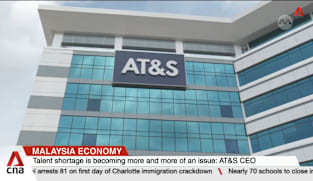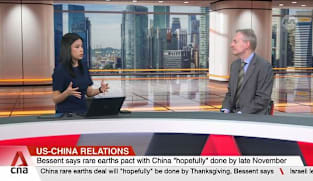Louis Chua on Income Tax (Amendment) Bill and Multinational Enterprise (Minimum Tax) Bill
In Singapore, corporate income tax is by far the single largest contributor to the Government’s budget. So, any policy changes in this area are going to have the most significant impact to the country’s operating revenues, long-term fiscal position and fiscal strategies - if allowed to. MP Louis Chua made this point in Parliament on Monday (Oct 14), during the debate on a Bill which would align Singapore with a global corporate minimum tax rate of 15 per cent for large multinational enterprises (MNEs). Mr Chua asked whether the Government plans to effectively return any additional corporate income tax revenues back to the MNEs. Specifically, he raised concerns about the Refundable Investment Credit (RIC) which was introduced in Budget 2024. He said that in his view, the effectiveness of the Bill and the amount of net revenues collected from MNEs “will substantially depend on the extent of the generosity of the EDB and EnterpriseSG towards these MNEs”. Mr Chua said that should the rollout of the global minimum tax proceed as scheduled, Singapore should seize the opportunity to adapt and innovate when it comes to considering new economic development models that are more sustainable and less reliant on short-term tax incentives. He also urged the country to “be a bit prouder of (its) non-tax advantages, including (its) most important asset - Singaporeans themselves”, rather than believe that without aggressive tax incentives, it would not be competitive to international MNEs.
In Singapore, corporate income tax is by far the single largest contributor to the Government’s budget. So, any policy changes in this area are going to have the most significant impact to the country’s operating revenues, long-term fiscal position and fiscal strategies - if allowed to. MP Louis Chua made this point in Parliament on Monday (Oct 14), during the debate on a Bill which would align Singapore with a global corporate minimum tax rate of 15 per cent for large multinational enterprises (MNEs). Mr Chua asked whether the Government plans to effectively return any additional corporate income tax revenues back to the MNEs. Specifically, he raised concerns about the Refundable Investment Credit (RIC) which was introduced in Budget 2024. He said that in his view, the effectiveness of the Bill and the amount of net revenues collected from MNEs “will substantially depend on the extent of the generosity of the EDB and EnterpriseSG towards these MNEs”. Mr Chua said that should the rollout of the global minimum tax proceed as scheduled, Singapore should seize the opportunity to adapt and innovate when it comes to considering new economic development models that are more sustainable and less reliant on short-term tax incentives. He also urged the country to “be a bit prouder of (its) non-tax advantages, including (its) most important asset - Singaporeans themselves”, rather than believe that without aggressive tax incentives, it would not be competitive to international MNEs.



















